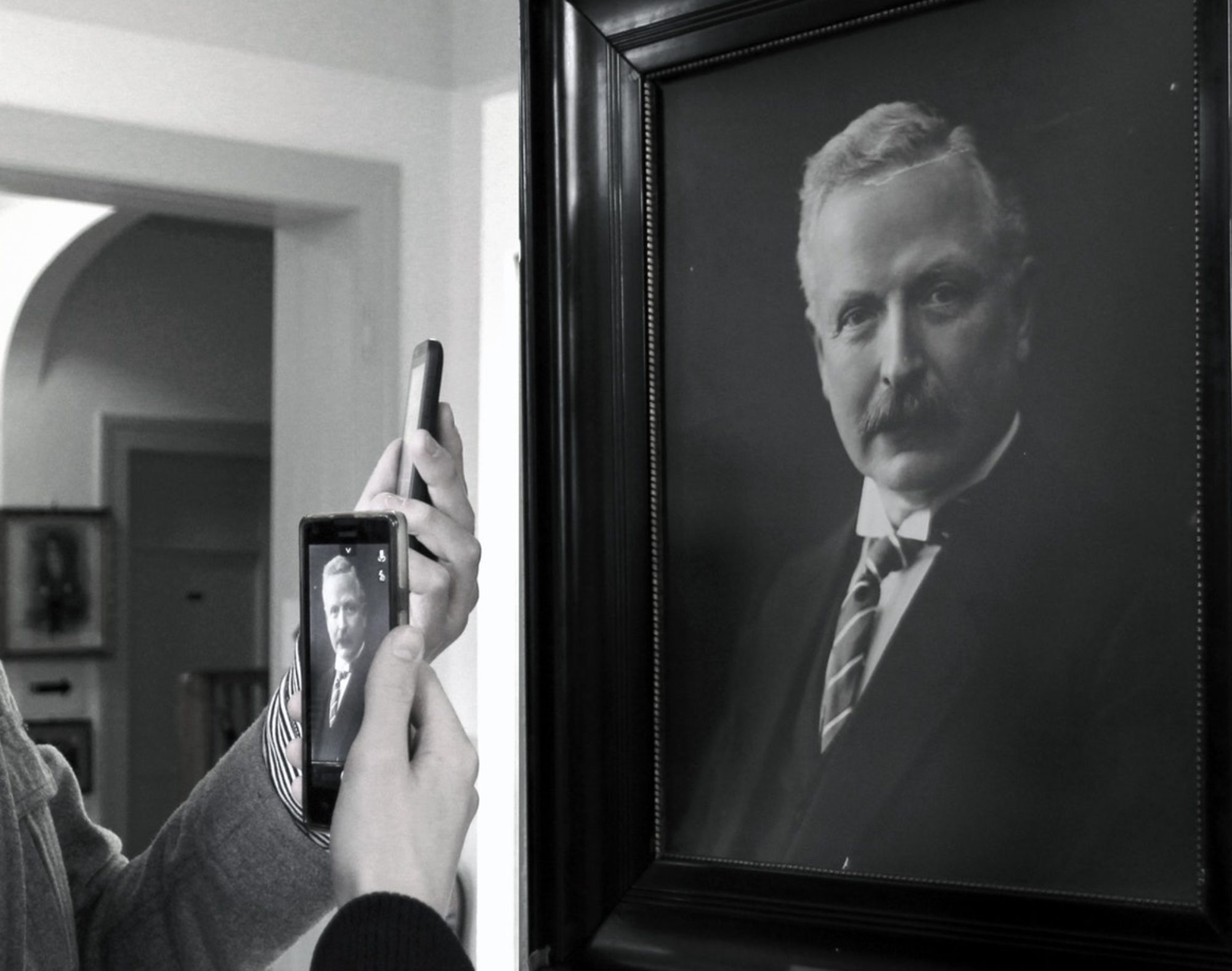Galileo Galilei stood before the Roman Inquisition in 1633 to defend his controversial theory of heliocentrism. Galileo was accused of heresy because he believed, based on his methodical observations (and application of the scientific method) of heavenly bodies, that the Earth orbited around the Sun. Known to be true today, Galileo’s views were completely contrary to the two main pillars of society at the time: Aristotelian philosophy and the Catholic Church. From Aristotle’s perspective on the ground, the Sun, Moon, and stars traveled across the sky – orbiting the Earth. The Bible also gave clear instructions: the Earth was fixed at the center of the universe and did not move. Galileo observed evidence to the contrary.
Through a telescope, a device he perfected, Galileo discovered and tracked the movement of four moons orbiting Jupiter (now named the Galilean moons in his honor). This was proof that there were heavenly bodies orbiting another object besides the Earth – man, therefore, was not at the center of the universe.
Galileo attempted to sell his innovative explanation for man’s place in the universe by translating his observations into a theory easily understood by those that influenced social policy in 17th century Europe – the clergy – in a similar fashion that a Product Owner (PO) communicates business requirements to a development team in a technology company. Most organizations call themselves technology companies these days – more people than ever occupy the PO role and uncover unmet user/market needs, then translate these needs to an engineering team in an easy-to-understand format called user stories. While this methodology is essential to the short term success of a product, there is another component missing.
The Product Manager (PM) must blend the user/business insight and clarity of language that is integral to the PO role with an understanding of the wider market context to shepherd a product toward sustained success. The PM goes one level deeper to understand the current market forces and future trends so that the right product is delivered at the right time. Put simply, a PO solves currently unmet needs while a PM builds a scalable product to solve needs today and in tomorrow’s market. Indeed, timing is everything.
Galileo’s theory was proven correct, but his timing was poor: the Catholic Church was locked in conflict as the Thirty Years’ War (actually a series of wars born from the Protestant Reformation which pitted Catholics against Protestants) raged throughout Europe and heliocentrism threatened the very foundation of Catholicism. Galileo was acting like a PO as he sought to explain the universe without regard for the wider context – the Catholic Church was in no position to entertain a theory that, if true, would totally refute a major tenant of Holy Scripture at a time when the Church was under siege (literally and figuratively). Galileo was found “vehemently suspect of heresy” and his writings were banned for a century.
Of course, Galileo’s failed presentation of evidence for heliocentrism isn’t the only example of an innovative idea that was launched prematurely and without regard for the wider market context.
Makers of Personal Digital Assistants (PDAs) correctly identified unmet needs – people in the early 1990s wanted to bring the functionality of a personal computer (contact lists, calendars, word processing, email, etc.) with them as they lived their lives. Advances in computing power enabled companies like Palm and Research in Motion to build products that met needs in the short term. One man, however, saw where the market was headed in the future and built a solution to meet it.
Steve Jobs is now revered for his apparent foresight in guiding Apple to the almost mythical status it enjoys today. Sure, Jobs was a visionary who could inspire people to achieve greatness. But, he also acted like any good PM to understand how unmet needs today should also translate to a scalable solution in the market tomorrow. Jobs recognized that as more people bought and used PDAs they would not only expect more functionality from the devices, PDA users would also want greater connectivity to do more with these increasingly powerful hand-held computers. He knew he needed a large wireless carrier partner to maintain both a cellular and data network that could support the growing market opportunity for the so-called ‘smartphone.’ So, Jobs negotiated a revenue sharing deal with AT&T and the rest, as they say, is history.
Jobs understood current unmet needs in the PDA space, correctly identified larger market trends, built the necessary ecosystem to address those trends, and delivered the iPhone at the right time. Galileo knew his theory of heliocentrism (based on his scientifically-sound observations) was correct but failed to account for the wider context of the challenges facing his most important market – the Catholic Church; Galileo lived out the rest of his days under house arrest.
The Product Owner role is essential for translating unmet needs into solutions today, but the best Product Managers go a step further to ensure products find scalable success in his or her lifetime.
Adam F. Caplan is the product leader at a rapidly growing digital healthcare IT company.


